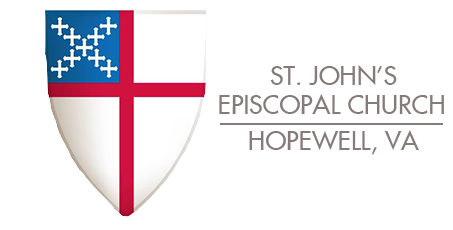BELIEFS
ABOUT BEING AN EPISCOPALIAN
Episcopalians are given Freedom of Thought with the building blocks of faith embedded in Scripture, Tradition & Reason to engage with God in the world daily.
01 Scripture
The Primary Source of doctrine.
Written by people inspired by the Holy Spirit.
02 Tradition
The wisdom of generations past.
Development of the Church under the guidance of the Holy Spirit.
03 Reason
The Gifts of the Holy Spirit.
Helps us to penetrate the full depths of God's Truth
Foundations of our Faith
The Authority of Scripture.
The Old and New Testaments contain all things necessary for salvation and are the essence of Christian doctrine.
They reveal God to humankind, and tell of the acts of God and our response to God in History. The Bible helps us to know God's will, revealed through the life, death, and resurrection of Jesus. The Scriptures are the Word of God, proclaiming that Jesus - both God and human being - is the Christ, the Messiah.
While Episcopalians hold to the idea of biblical authority, they have never held to a doctrine of biblical supremacy (where no other source of knowledge has any value), literal interpretation (that is everything in the texts are literally true), or verbal inerrancy (God wrote every word). However we have always supported all forms of biblical scholarship and have accepted diverse opinions. Holding Scripture in high regard and with authority does not mean they have ultimate authority in all matters, which, for example opens our minds to allow scientific truth to inform us on how the world was created. The Creation stories answer for us the why and by whom question..
Episcopalians do not assert that everything found within scripture is binding on us, for example, the dietary laws found in the Hebrew Scripture. But more importantly, we believe that Scripture is to be taken as a whole, not in isolation. We do not proof text, taking single verses or passages for theological, ethical, or moral conclusions.
The Episcopal Church comes a spiritual progeny of the Church of England, inheriting a proclivity toward finding middle ground between two extremes. This via media, or middle way helps us focus on the work of proclaiming the Gospel of Jesus Christ as we listen with honest dialogue to understand how to best live up to God's revelation in the world today.
Three Central Texts
Tradition.
Tradition helps us to interpret Scripture.
It lets us share experiences of early Christians and believers of every era; preserves hymns, prayers, etc., that keep our faith alive; strengthens our faith. Through its continuity and consistency, tradition helps preserve essential truths through liturgy.
We as Episcopalians take seriously the many ways in which the saints before us have dealt with issues of faith and doctrine.
We recognize that as we read the Scriptures, trying to discern the mind and will of God, that these writings were formed and interpreted throughout history. Through oral tradition, and the liturgies and practices of the early church were used in the formation of the New Testament. Scripture did not speak clearly on all issues, and by nature, required interpretation, and the wisdom of the community to be an important guide to life of faith today.
Tradition, however is much more than just the history of interpretation of Scripture. Tradition is also expressed in our liturgies with our prayers, appointed collects, lessons, and hymns.
Just as the Scriptures inform tradition, tradition informs Scripture. Special attention is given to the first five centuries of the Christian church where the canon of scripture was established, ecumenical councils were held, creeds established.
Just as the church is not infallible, neither is tradition. It too must be open to interpretation and reform. Though we continually strive to know and do the will of God through the use of the "three-legged stool" of Scripture, tradition, and reason, we cannot help but to have disagreements and tension within the church. As such the church must be held together finally by the authority of love.
Interpretation of faith varies somewhat from parish to parish, but within the framework of several basic guidelines.
Three ancient Creeds summarize the Christian faith and they clearly express our faith in the Holy Trinity.
Reason.
The Episcopal Church does not control interpretation and practice.
Instead, members are encouraged to use their own reason to explore and comprehend God's works; to make responsible moral decisions under the guidance of the Holy Spirit in response to sincere prayer.
Reason is more than logical analysis. It includes an intuitive way of thinking and knowing. It is a contemplative reflection on contemporary experience and knowledge in light of Scripture and tradition. Reason involves both common sense and the wosdom to draw on the very broadest scope of human understanding, along with the deep well of personal experience. It is that tool that is necessary in understanding both Scripture and tradition. It also plays a significant role by providing a means by which to express and communicate God's revelation.
Understood in this way, reason is the means by which the Holy Spirit works within the church to discern the mind and will of God.
Reason may be far from perfect and cannot on its own bring us faith as there are still some truths that cannot be proved, but only believed. We believe that God has left us with many great mysteries, which only helps us to inquire, question, and continue our journey in wonder.



